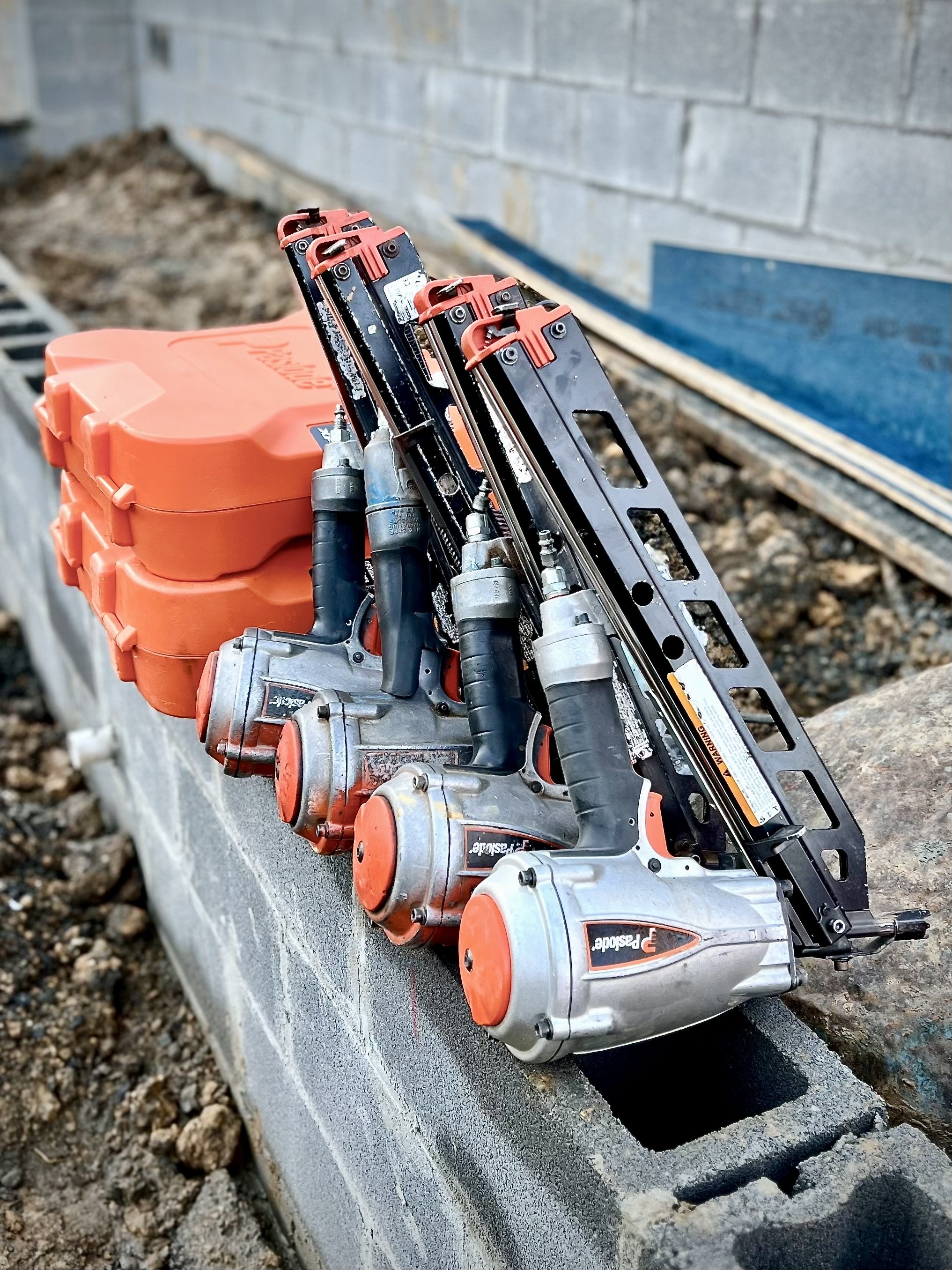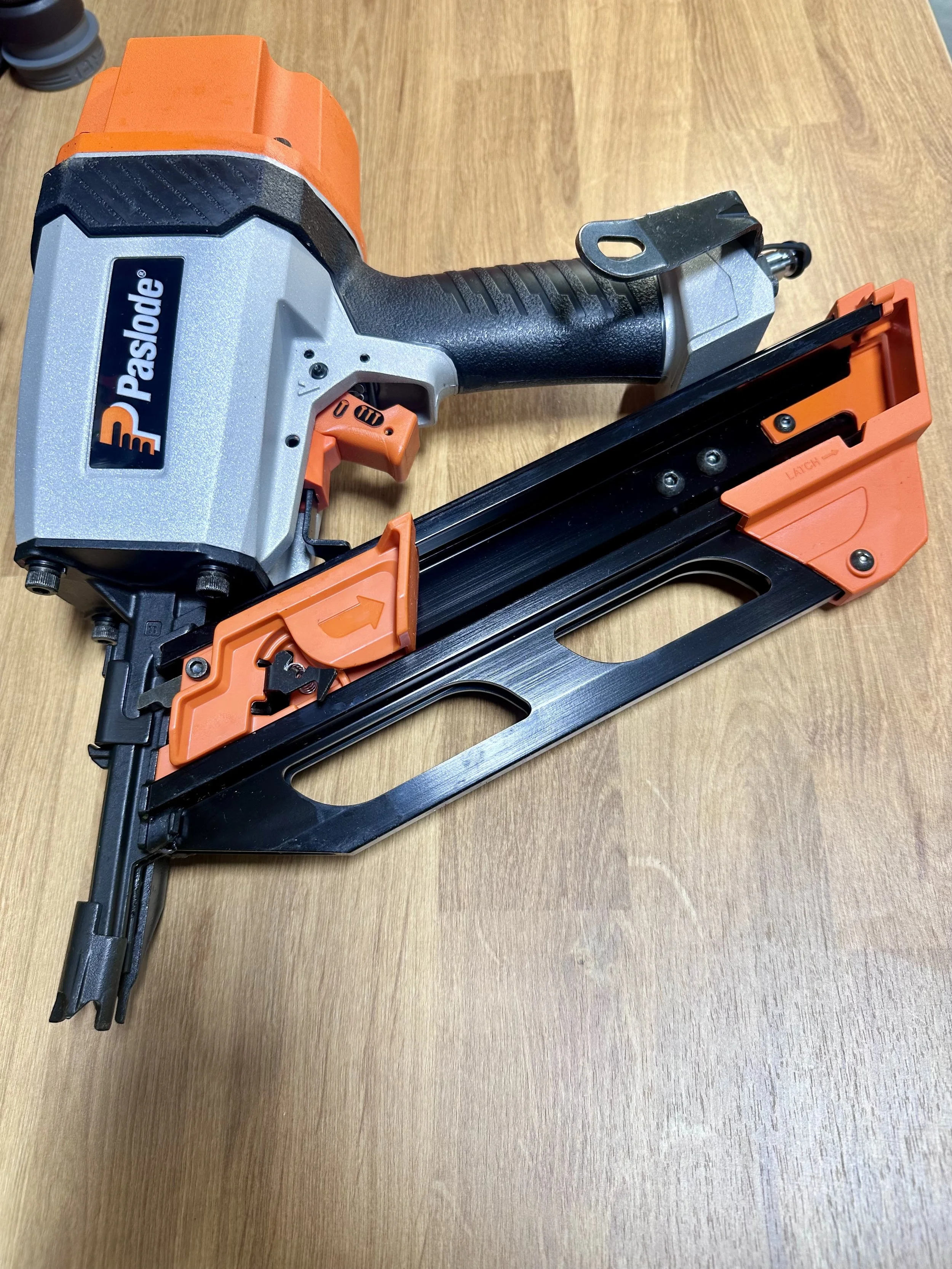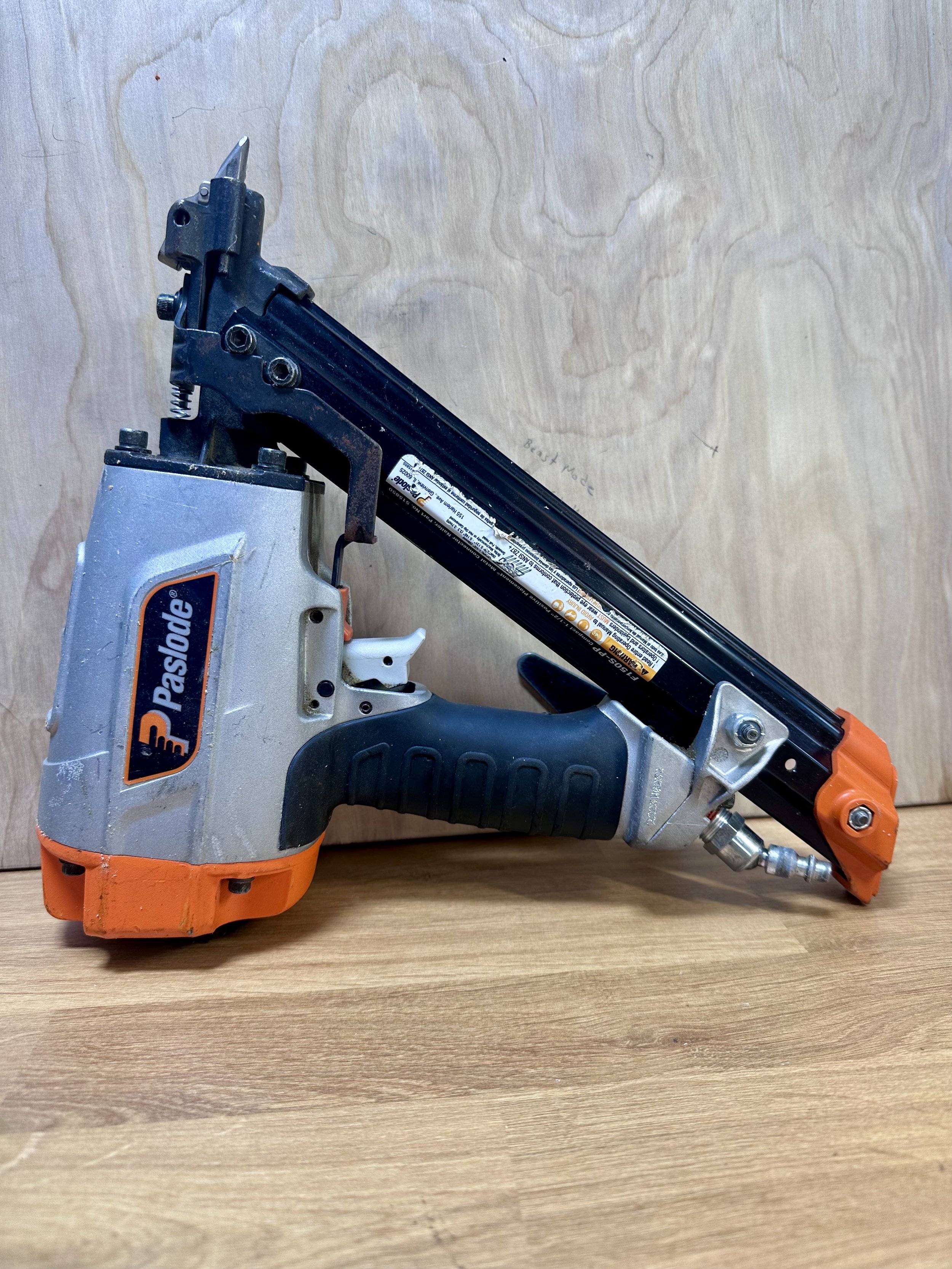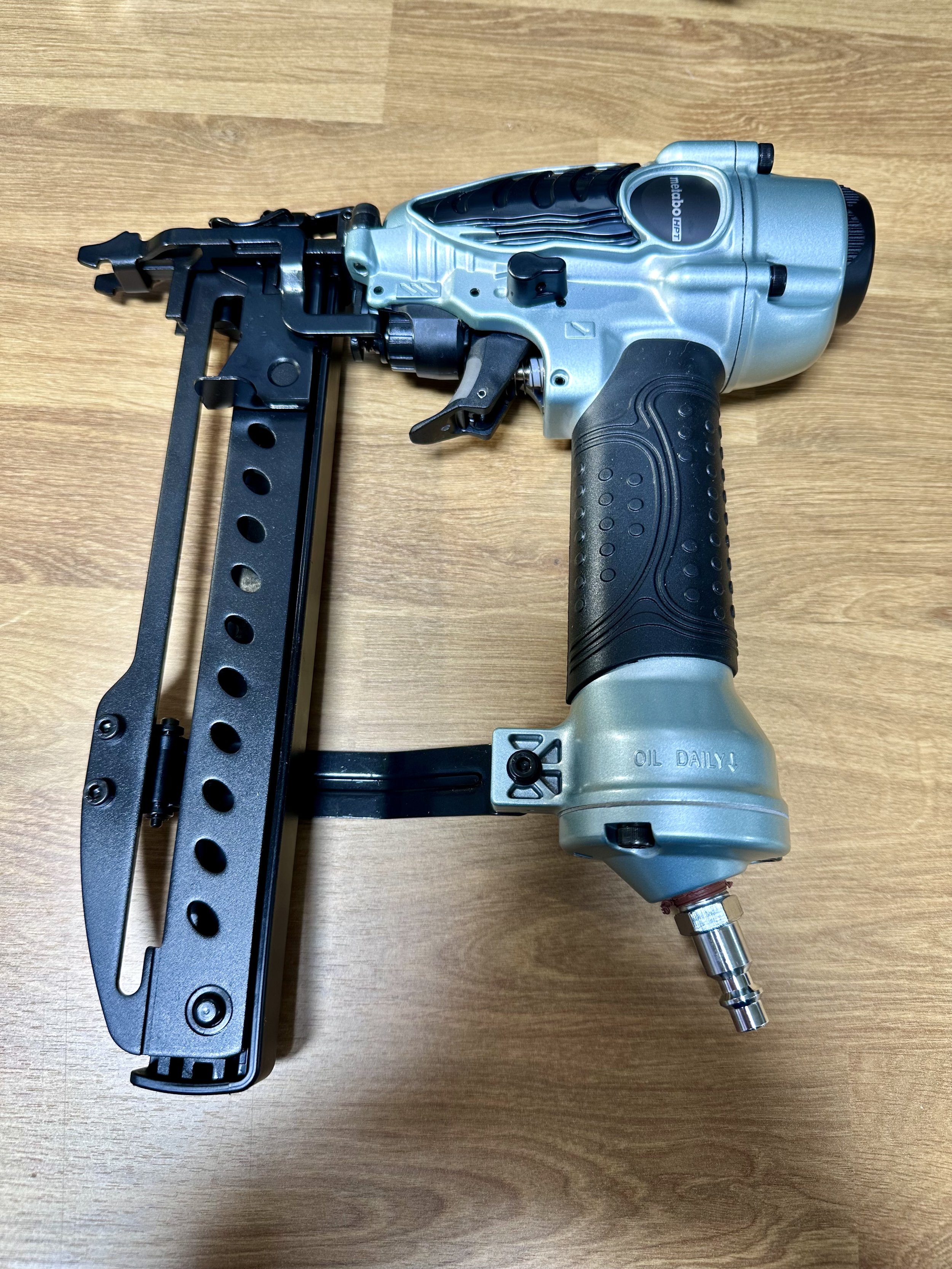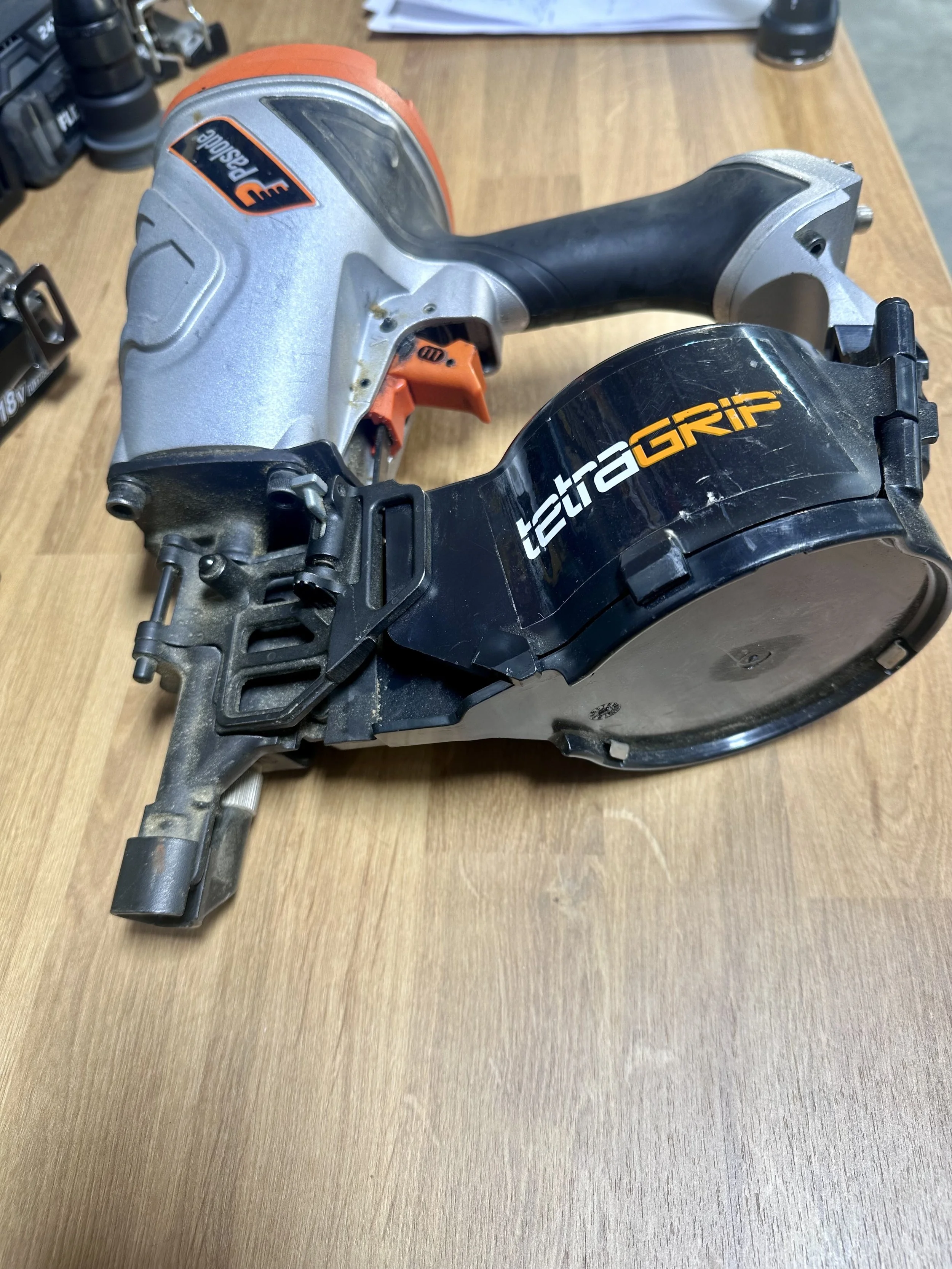PNEUMATIC NAIL GUNS
Framing Nailer
Use: Designed for heavy-duty construction tasks like framing houses, building decks, and other structural work. Uses larger, stronger nails for superior holding power.
Limitations: Bulky and heavy; not suitable for precision work or delicate trim due to its larger nail size and potential for surface damage.
Compact Framing Nailer
Use: This compact light weight framing nailer helps you work in tighter spaces while maintaining its superior performance in framing houses, building decks, and other structural work.
Limitations: Also not suitable for precision work or delicate trim due to its larger nail size and potential for surface damage.
Subfloor nailer
Use: This subfloor nailer is unique in that the nails are designed to grip like a screw with the speed and accuracy of a nail gun. Reduces subfloor movement and noise by adhering better than traditional subfloor nails.
Limitations: Designed mostly for subfloor application not ideal for other framing application Designed for specific nail type.
Pneumatic Positive Placement® Metal Connector Nailer
Use: The Pneumatic Positive Placement Metal Connector Nailer has Paslode's proprietary Positive Placement nose tip, which allows you to quickly and accurately find metal connector holes and drive nails with precision and speed. available in 1-1/2” and 2-1/2” nail gun.
Limitations: nails are good for tacking together pieces before installing metal connectors but not for structurally holding two pieces of wood together.
Siding Nailer
Use: Tailored for siding installation, such as vinyl or wood siding. Offers specific nail placement and depth adjustment for securing siding materials effectively.
Limitations: Specialized for siding tasks; not versatile for other construction purposes due to the specific nails and features optimized for siding installation.
Finish Nailer
Use: Excellent for larger moldings, baseboards, and heavier trim work. Uses thicker gauge nails than brad nailers, providing increased strength and holding power for securing larger pieces of wood.
Limitations: Not suitable for heavy-duty framing or structural applications; limited nail length compared to framing nailers.
Brad Nailer
Use: Suited for trim work, furniture making, and delicate woodwork. Offers slightly thicker nails than pin nailers, providing better holding strength for thin materials without leaving conspicuous holes.
Limitations: While stronger than pin nails, brad nails still lack the holding power required for heavy-duty framing or structural work.
Pin Nailer
Use: Ideal for delicate trim work, cabinet making, and lightweight moldings. Leaves nearly invisible holes due to its small gauge nails, perfect for finishing work where appearance is crucial.
Limitations: Limited holding power due to small nail size; not suitable for heavy-duty construction or structural applications.
Roofing Nailer
Use: Designed specifically for roofing applications, securing shingles and roofing materials to roof decks. Uses coil-style nails for rapid installation and increased holding power.
Limitations: Specialized for roofing tasks; not suitable for other construction purposes due to the specific coil nails used.
Staple Gun
Use: Versatile tool used for attaching fabric, insulation, or securing thin materials like cardboard and thin wood to surfaces.
Limitations: Limited holding power and not suitable for structural work or heavy-duty construction tasks.
Concrete/ Steel Nailer
Use: This is a High pressure nailer that can shoot nails through steel and concrete. Extremely valuable tool for integrating wood framing into a steel or concrete structure.
Limitations: The nails for this gun are generally only steel or concrete nails so having the right nails for joining to mediums is important.



